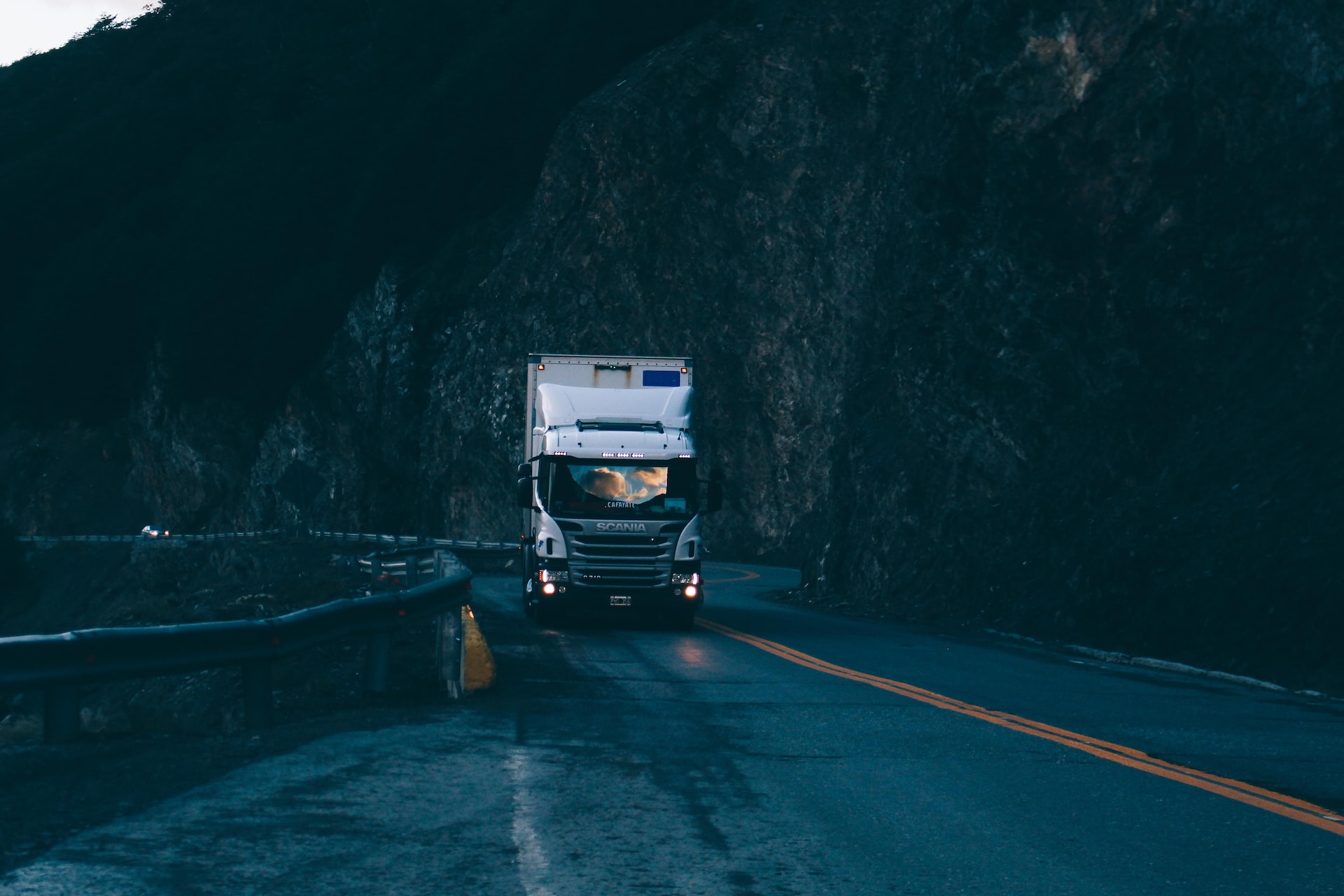Big data and box trucking are not two terms that are usually talked about in relation to each other. People don’t generally associate the technological boom with the ‘on-the-road’ industry such as box trucking.
However, that’s rapidly changing. The box truck industry has been readily embracing the optimization that comes with digitization and technology. Big data has opened up unprecedented opportunities for industries, box trucking included.
It helps box trucking businesses simplify their operations to create more growth opportunities. Let’s take a look at how big data is transforming the future of the box truck industry with the power of analytics, AI, and optimization.
How Big Data is transforming the future of the Box Truck Industry
The value of the global logistics market went up from $7,000 billion in 2017 to an estimated $12,000 in 2027. This staggering rise in value is attributed to businesses involved in logistics tapping the true potential of big data and AI.
Big data refers to large and complex sets of data that cannot be computed by traditional data processing solutions. When analyzed by appropriate highly powerful tools, big data sets reveal patterns and trends that help optimize operations to their fullest.
When incorporated into logistics industries such as box trucking, big data helps revolutionize many important aspects of it. It helps identify the most optimized route for a truck’s operations along with accurate tracking of the transportation of goods, among other things.
Let’s take a look at some of the most prominent ways big data is transforming box trucking to ensure optimization and growth:
1. Ensuring safety

Insurance is an indispensable aspect of running a business, especially a small business such as box trucking. Big data helps you assess associated risks with your business in relation to its scope and nature.
By running needed calculations, you can figure out what kinds of insurances you need along with the extent of coverage you shall opt for. CoverWallet’s box truck insurance is one such option that helps you choose the right cover for your box trucking business.
Not only do you get to buy and manage your insurance with ease, but you also get to tailor your options to fit your needs and budget without hassle. This is another aspect where big data can be of major use.
You can use big data calculation to analyze different types of insurance covers as well as different insurance providers to see what options you get the most benefit from. It helps you create the most optimized rooster of insurance covers.
a). Choosing the correct insurance
To help you choose the best insurance for your box truck business, here are some of the most common types of insurances small businesses opt for:
a) General liability insurance — This is a general insurance cover that protects you from claims of bodily injury, property damage, and damage to any belongings of a person. Most businesses opt for it to have a generalized cover for their business operations.
b) Commercial auto insurance — An important insurance for box trucking business, it covers all the vehicles used for your business operations front theft and damage.
c) Cargo insurance — Often seen as an inland marine insurance, it protects for-hire drivers against loss or damage to the cargo they are transporting in their vehicles.
d) Workers’ compensation insurance — Another essential policy that protects your drivers from injuries and sickness acquired on the road. It also offers many additional benefits.
e) Bobtail insurance — This cover protects you when you are operating a trailer vehicle that isn’t connected to the trailer. It protects against property damage as well as bodily harm that occurs during such operations.
f) Non-trucking liability — It covers a fairly unique scenario. It protects you against incidents that occur when you use your business trucks for personal use.
The goal is to create a well-rounded roster of policies that provide comprehensive cover for all contingencies while providing you the security to grow in the future. Big data calculations can greatly help in identifying the perfect roster of policies along with the extent of cover.
2. Optimizing routes

Identifying the most optimal route for a journey from point A to point B can be tremendously beneficial. It saves time, effort, and resources such as fuel and electricity. Moreover, it helps you avoid risk and track your vehicles more efficiently.
Big data collects and used information such as weather data, shipment data, delivery specifics and frequencies, and traffic situations to allow you to craft the most optimal route for trucking operations. It may or may not be the shortest, but it will be the most beneficial.
For example, a route may take 20 minutes to deliver a package while the other would take 27 minutes. Normally, a business will opt for the 20-minute route. However, big data analytics may reveal that the shorter route is expected to have more traffic at that time.
It may also be more prone to accidents and the cargo you’re carrying is delicate. This way, big data analytics will help you choose the more optimal path – the 27-minute path over the obvious but more risky route.
3. Better truck tracking
Big data has brought a whole new dimension of visibility to the delivery business. Not only can a business track its trucks on the road to know their exact location at every point, but customers can also track their packages with ease as well.
Moreover, they receive notifications in the form of text messages or emails that keep them informed about their package at all times. This practice brings transparency between your business and your customer and vastly reduces inquiries about packages.
Big data has been able to achieve this through the use of GPS devices, bar codes, real-time traffic data, and RFID tags. All these sources put together create a convenient map for box trucking businesses to plan their deliveries with ease.
They can coordinate with their drivers and facility managers better. It also gives the power to drivers to be able to perform their roles as expected and not rush them. They know they’re being tracked and what the expected time for the delivery is at all times.
4. Storage management
Storage plays a crucial role in box trucking. You need to have your cargo organized and in the best of condition for easy shipment and on-time delivery. Big data helps you ensure a seamless flow of cargo in and out of the storage for timely deliveries.
Installing sensors and monitoring equipment all around a warehouse helps keep an accurate idea of the availability of the goods. It’s an improvement over the ERP systems that were previously used in storage.
The sensor-based system gives a minute-by-minute evaluation of the warehouse to its managers. The information is further passed to the IT team that updates the website about the availability of the goods.
This creates a seamless loop where everyone is informed and deliveries can be conducted based on the real-time availability of the goods. The chances of errors are vastly reduced as well as customers being misinformed.
5.Customer service

Customer service is an often overlooked aspect in the box truck industry. But servicing the customers efficiently is an excellent way to make them choose you again and again. Moreover, it also gives you good word of mouth, attracting more customers.
Big data helps you provide top-notch customer service with analytics such as surveys about what customers expect from you or what they dislike the most. In general, customers dislike late deliveries and non-communication about their package updates the most.
You can make use of big data to eliminate these issues. Set up a system to send regular automated notifications about the progress of their package and pick the most optimized route to ensure the packages reach the customers as quickly as possible.
6. Operation planning
Planning every operation beforehand with the help of big data tools helps you ace every operation with flying colors. Make use of data sets about the weather, demand-supply, routes to use, and traffic conditions to craft the perfect delivery operation.
Moreover, study your box trucks to learn about their capacities and limitations. Load them accordingly to ensure they don’t get overloaded and falter during the delivery operation. Putting sensors around your truck will equip you to get real-time updates during the delivery. This is especially useful for delicate goods and perishable goods.
Make use of analytics to optimize your box truck operations for maximum success
Big data has been revolutionizing the way businesses operate. Box trucking is one such industry to be gaining with the use of advanced analytics to optimize its operations. Big data is being majorly used in the industry to ensure the safety of both drivers and trucks.
Moreover, businesses are able to chart the most optimized route for deliveries to save time, money, and effort while avoiding risks and hazards. Analytics are further used to improve warehouse operations and enhance communication between departments with real-time updates.
Let us know in the comments how you think big data has been transforming the box truck industry and how to make the most of it.

